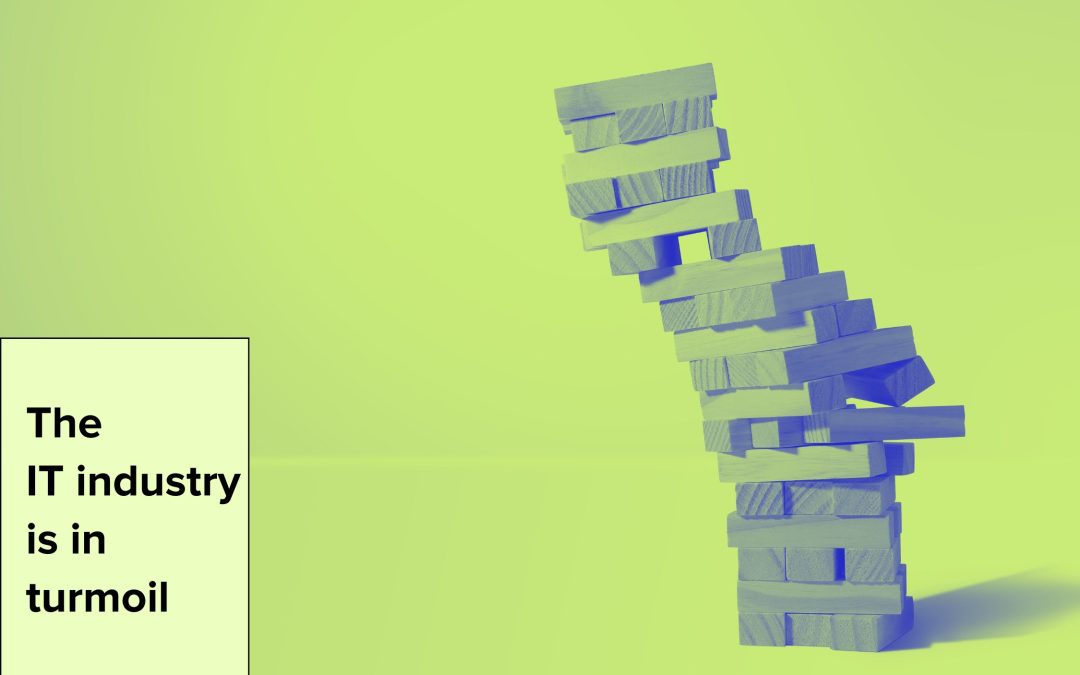Technology specialists are right to promote the use of AI in all industries and sectors of the economy. There are lots of good reasons for businesses of every size to update and upgrade their operations, manufacturing, sales, marketing, finance and all their other functions by taking advantage of the technological transformation that we are all going through.
No matter the industry, no matter the size or type of legal structure, companies need technology in everything they do. There is very little business that can be done today without software, in any industry, anywhere in the world.
Efficiency gains are one of the biggest benefits of AI. Doing more, with fewer resources, in less time. What manager can say no to that?
I have seen many examples in the past year. For one of their enterprise clients, a team from Cluj used AI-based tools to reduce a 3-week process with 1 full-time employee to 1 day of work. A contractor I know used GenAI to write the entire front-end for a SaaS app. Startups are building prototypes with Lovable and launching in days instead of months.
The IT industry is in turmoil
I am sure you have seen lots more examples like those.
You have also witnessed the impact AI has on the way IT & software services vendors deliver their services.
Your CTO builds a Proof of Concept with GenAI for a client during the lunch break. The client was expecting to see a proposal for a few weeks of work. How much do you charge them?
One of your developers asks for a salary increase by informing you he has been using Devin to write code faster. You are selling hours to the client, thus charging less overall. What do you do?
The tension in these situations comes from the use of Time & Materials (T&M) as the principal way of selling services. Its use is so widespread and entrenched that sales people don’t know how to sell anything else, project managers don’t know how to report progress without timesheets and finance departments can only calculate profits based on a cost + margin model.
Companies selling hours and T&M present themselves as commodities. In economics, a commodity is an economic good, usually a resource, that has full or substantial fungibility: that is, the market treats instances of the good as equivalent or nearly so with no regard to who produced them. Commodities can be easily compared.
Thus, buyers of commodities use price as the main buying criteria. That is good news if you are one of the cheaper suppliers. That is terrible news when your costs have increased quickly and you need to compete on quality and value, not price.

Finding New Paths Forward
We have to accept that AI will kill the billable hour. Ask any pricing expert working with B2B services companies and they will tell you that companies need to move from charging for inputs (time) to billing outputs and outcomes.
You can charge for time when most of the input for delivering the service comes from people applying their skills and expertise.
But when you use technology to accelerate the process or to improve the quality of the work, and you have to pay for that technology, charging for time is not sustainable anymore.
If you sell efficiency but you invoice inputs, you are killing your own business model. The better you are, the less work you will have.
When I talk to owners and managers of Romanian IT companies, it’s clear that most people know about the contracts and pricing models that can be used to sell and deliver services. They clearly understand the trade-off between risk and profit that is embedded in all these different types of contracts:
- Offshore Development Center
- Dedicated Team and Resources
- Time & Materials
- Fixed Scope, Fixed Price
- Pain Share / Gain Share Contract
The problem is the gap between theoretical knowledge and practice.
We have done several extensive competition research studies, including with mystery shopping initiatives. We have reached hundreds of Romanian IT companies. Numbers don’t lie. More than 96% of the answers we saw involve hourly rates and variations of T&M approaches.
Unfortunately, our IT industry is not prepared for the AI wave.
The industry that should help all other industries adopt advanced technologies cannot play the role to its full potential if it doesn’t update and upgrade its own business model.
Cluj IT will not be liable for any false, inaccurate, inappropriate or incomplete information presented, as the authors are free to choose their approach and relevant topics, within the general guidelines of the newsletter. The opinions expressed by the authors and those providing comments are theirs alone, and do not reflect the opinions of Cluj IT.
Certain links in the articles or comments may lead to external websites. Cluj IT accepts no liability in respect of materials, products or services available on any external website which is not under the control of Cluj IT.





























